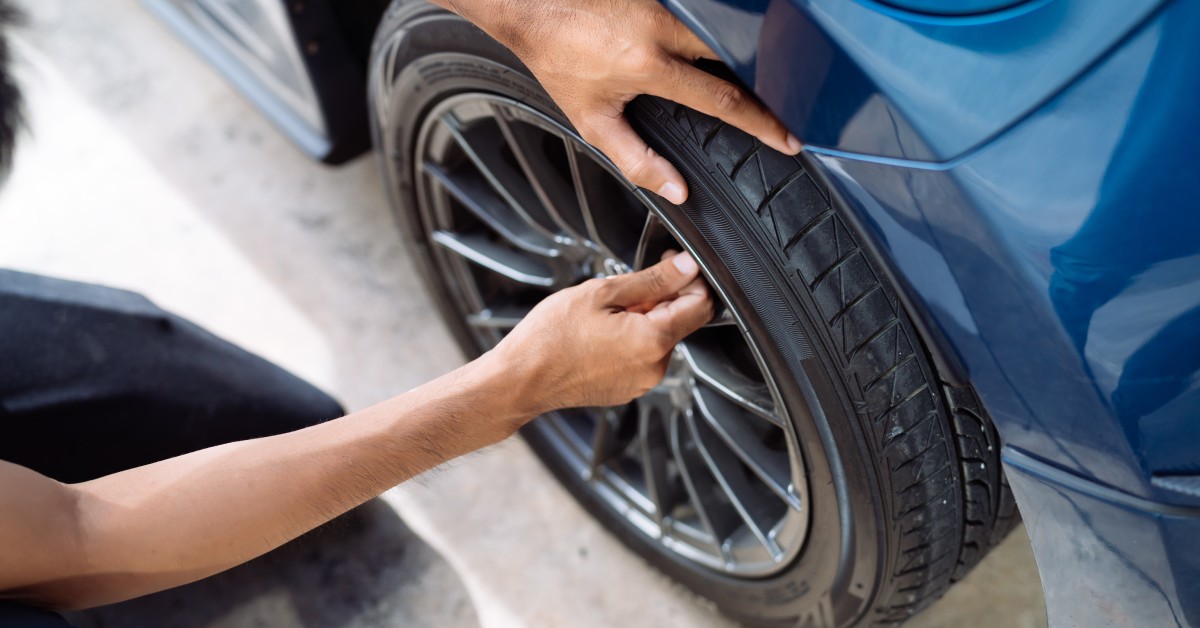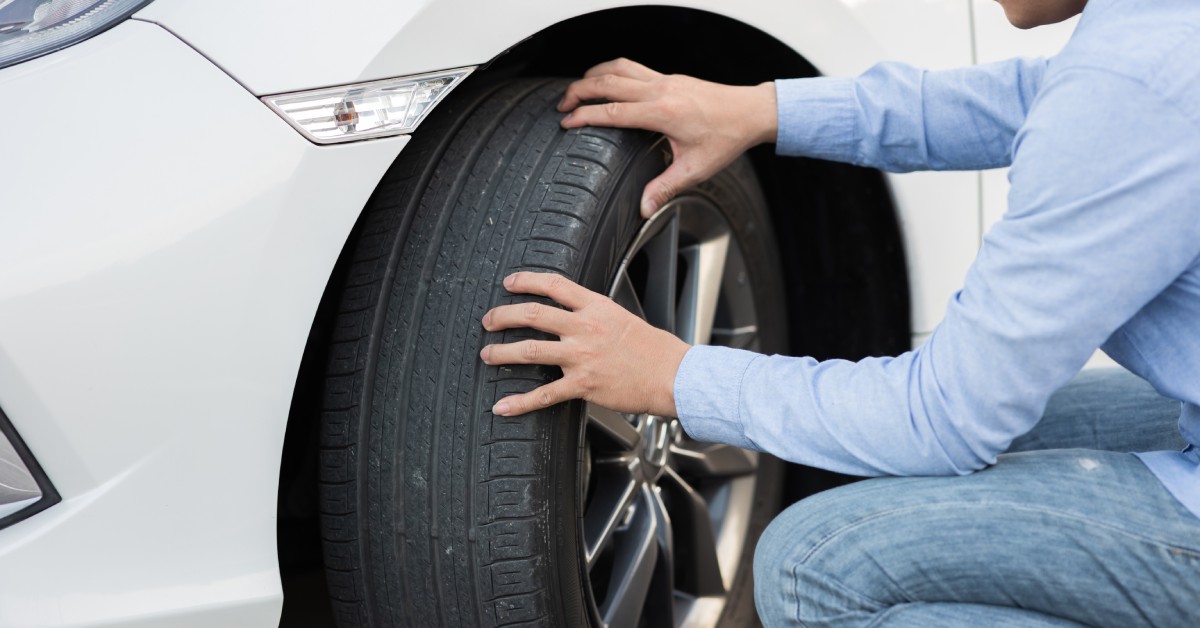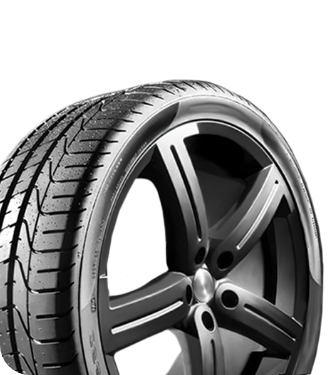

8 Differences in Tires for Electric vs. Gas Cars
Tires |Many drivers are considering the benefits of electric cars, but what does making the switch really involve? For one thing, you must consider your tires when you purchase an electric vehicle. Electric car drivers who have switched from gas must know the differences in tires to keep their vehicles performing efficiently.
1. Weight Distribution Creates Different Wear Patterns
Electric vehicles (EVs) weigh more than comparable gas cars due to their heavy battery units. This extra weight concentrates in the vehicle’s lower section, creating a lower center of gravity and increasing overall tire load.
Heavier weights can place more stress on tires during acceleration, braking, and cornering. EV tires often show different wear patterns than gas-car tires, particularly along the edges and center treads. This weight difference requires EV tires to be engineered to handle the increased load while maintaining performance and safety standards.
Gas-vehicle tires can distribute the weight more evenly than EV tires. Their traditional weight distribution creates predictable wear patterns that tire manufacturers have optimized over decades.
2. Rolling Resistance Affects Range and Efficiency
Maximizing driving efficiency is a priority for EVs, so their tires offer low rolling resistance. Every bit of energy conservation matters when your fuel tank is a battery pack with limited capacity. EV tires use specialized rubber compounds and tread designs that reduce friction with the road surface.
Tires with low rolling resistance can improve an EV’s range and enhance daily driving capabilities. The tire construction often features silica-enhanced rubber compounds and optimized tread patterns that minimize energy loss as the tire flexes and rotates.
3. Instant Torque Demands Stronger Construction
Unlike gas engines, electric motors deliver maximum torque instantly. Immediate power places intense stress on tires during acceleration, which means tires require specialized tread compounds and reinforced construction.
EV tires often feature stronger sidewalls and more robust internal construction to handle sudden torque loads. The tread compounds must grip effectively under high torque while resisting premature wear from aggressive acceleration patterns.

4. Noise Reduction Is Critical for EVs
Without engine noise to mask road sounds, electric vehicles amplify tire noise. EV tires incorporate advanced noise reduction technologies, including specialized tread patterns, foam inserts, and sound-dampening materials.
Many EV tires feature asymmetric tread designs that break up sound waves and reduce cabin noise. Some premium EV tires include polyurethane foam attached to the inner tire surface, which absorbs road noise before it enters the vehicle cabin.
Gas-car tires don’t require the same level of noise reduction since engine and exhaust sounds naturally mask road noise. While premium gas-car tires may include noise reduction features, it’s not the primary design consideration.
5. Tread Patterns Optimize Different Performance Needs
Electric-vehicle tires often feature unique tread patterns designed for efficiency and low noise rather than maximum grip. These patterns may include continuous center ribs for reduced rolling resistance and specialized groove designs that minimize air turbulence.
The tread depth and pattern spacing on EV tires prioritize smooth, quiet operation over aggressive traction in extreme conditions. This design philosophy supports the electric vehicle’s focus on efficiency and refinement.
Gas-car tires offer diverse tread patterns optimized for specific driving conditions and performance requirements. From aggressive all-terrain patterns to high-performance summer compounds, gas-car tires span a broader range of specialized applications.
6. Replacement Frequency and Cost Considerations
Electric-vehicle tires typically require more frequent replacement than gas-car tires due to the additional weight and instant torque delivery. Many EV owners report tire replacement every 20,000 to 30,000 miles compared to 40,000 to 60,000 miles for gas-car tires.
EV tires often cost 20 to 50 percent more than comparable gas-car tires due to specialized construction and lower production volumes. However, improved efficiency and performance characteristics justify the higher initial cost through better range and driving experience.
Replacement frequency depends heavily on driving habits, with aggressive acceleration patterns significantly reducing tire life. EV owners who practice smooth acceleration and regenerative braking can extend tire life closer to gas-car tire expectations.

7. Temperature Management Affects Performance
Electric vehicles generate heat differently from gas cars, affecting tire temperature management. EV tires must handle heat generated by the vehicle’s weight and instant torque while maintaining optimal performance characteristics.
The battery pack’s thermal management system can influence underbody temperatures, potentially affecting tire performance in extreme weather conditions. EV tires often incorporate heat-resistant compounds to maintain consistency across temperature ranges.
Gas-car tires face more predictable thermal conditions, with heat primarily generated through normal friction and ambient temperature changes. The thermal management requirements are less complex than those faced by electric vehicle tires.
8. Regenerative Braking Tire Wear Dynamics
Electric vehicles use regenerative braking to recover energy, reducing reliance on traditional friction brakes. This technology affects how tires wear, often creating more even wear patterns than gas cars that depend primarily on brake pad friction.
The regenerative braking system can extend tire life by reducing the aggressive deceleration forces that typically cause uneven wear. However, the system’s effectiveness varies by driving conditions and driver behavior.
Gas-car tires experience more traditional wear patterns from standard braking systems, with predictable wear characteristics that tire manufacturers have optimized for over many years.
Choose the Right Tires With RNR Tire Express
Choosing the right tires for your vehicle, whether electric or gas, is vital to driving efficiently and safely. At RNR Tire Express, we can help you find the best tires in Clovis. Our reliable and affordable options can maximize your car’s performance. Whether you’re looking for all-season tires, performance tires, or specialized options suited to electric vehicles, our knowledgeable team is here to guide you through the selection process. Come in to talk to one of our team members and learn more about your tire options.
Make the Best Choice for Your Vehicle
Understanding the differences between tires for electric and gas vehicles can help you make informed decisions about tire maintenance and replacement. Both types of cars require drivers to focus on different aspects of vehicle performance, and the right tires can meet those needs.
All tires benefit from proper maintenance, including regular pressure checks, alignment monitoring, and rotation schedules adapted to the vehicle’s wear patterns and requirements. Don’t wait for your tires to give you problems; visit RNR Tire Express today to get a head start on your next tire purchase.





